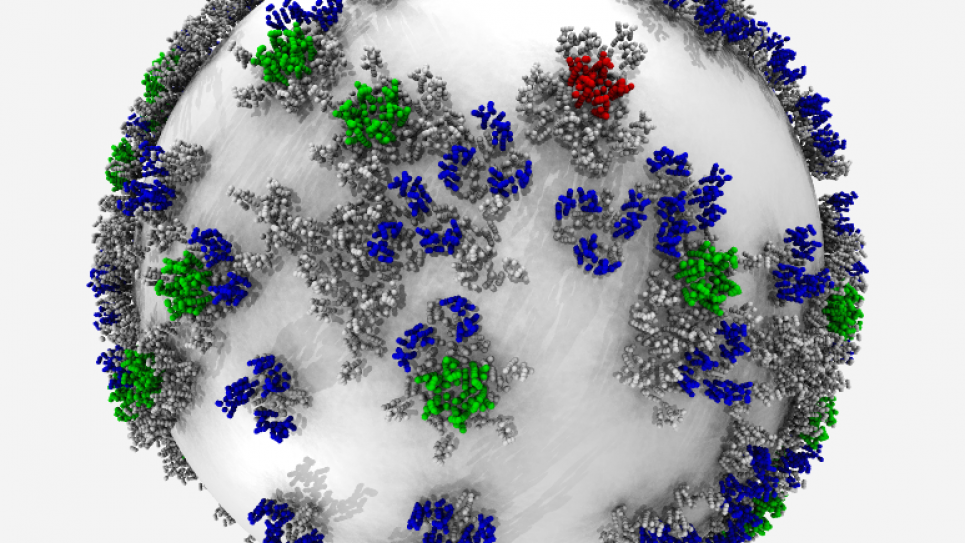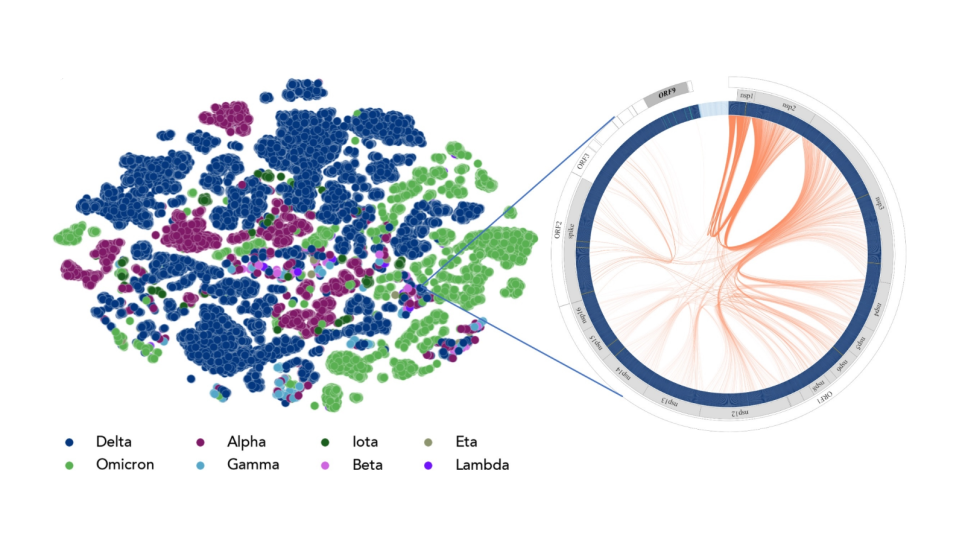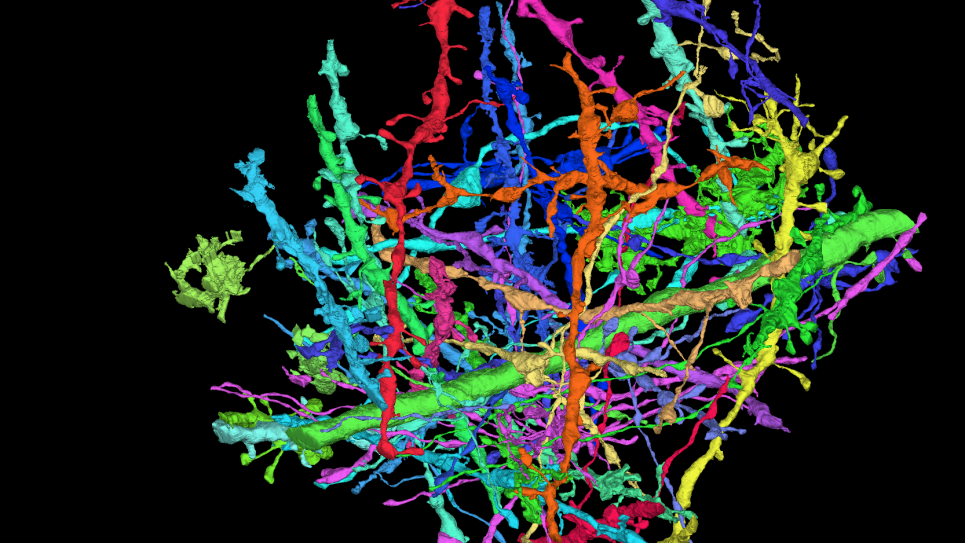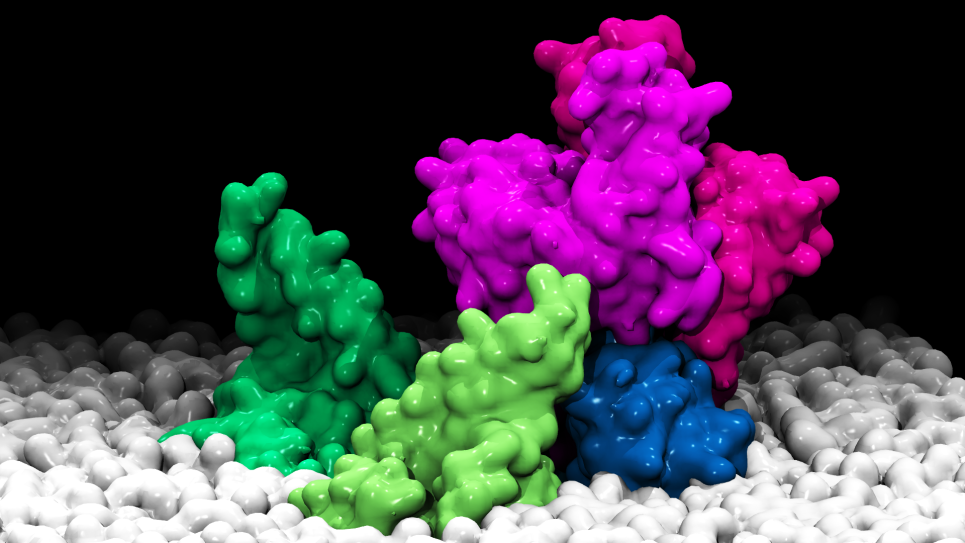
Multiscale Molecular Simulations at the Petascale
Project results will directly impact the understanding of cellular-scale biological processes via coupling of multiscale computer simulation methodology with petascale computational algorithms and hardware. When combined with leading-edge experimental research, the project will provide key scientific advances relevant to human health and the understanding of the biological world.
Researchers will apply multiscale bio-simulation methodology to three scientific problems: (1) Simulation of key steps of the HIV viral replication cycle. The human immunodeficiency virus type 1 (HIV-1) begins assembly with multimerization of the Gag polyprotein near the plasma membrane of infected cells. There has been debate over exactly how many Gags are in the immature virion. The researchers will use their methodology to construct coarse-grained (CG) models directly from structural biology experiments and physics-based interaction modeling. (2) Simulation of the Ribosome. Protein biosynthesis is a core life process in cells, which is mainly achieved by ribosomes. Since the ribosomes are targets for drugs such as antibiotics, a deep understanding of the mechanism of protein synthesis can aid in drug discovery. (3) Simulation of microtubules. Microtubules are one of the key components of the cytoskeleton, involved in trafficking, structural support, and cytokinesis. Microtubules are polymers assembled from alpha/beta tubulin dimers in the form of tubes with a diameter of 25 nm and variable lengths. Because of their size and the long timescale dynamics of these assemblies, these large and important protein assemblies inherently require a petascale multiscale simulation approach.


